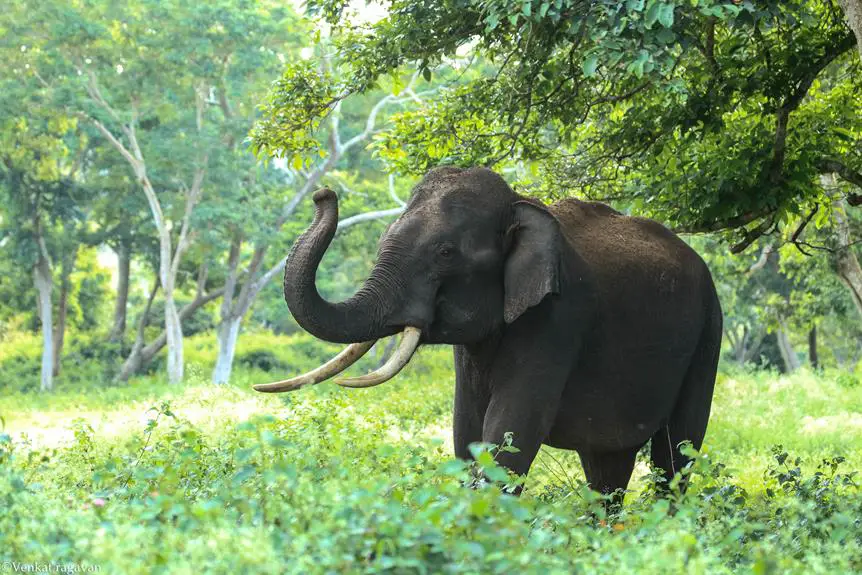Picture yourself deep in the heart of the African savannah, surrounded by the majesty of the animal kingdom. In this vast wilderness, where mighty elephants roam, have you ever wondered what makes these magnificent creatures tremble with fear?
Delve into the fascinating world of elephant psychology as we unveil the secrets of what they are truly scared of. From natural predators to thunderous sounds, prepare to be captivated by the intricate tapestry of an elephant’s fears.
Key Takeaways
- Lions are natural predators of elephants and target them by going after their vulnerable areas such as their legs and trunk.
- Elephants are easily startled by loud noises and they can disrupt their behavior and cause stress. Conservation efforts aim to minimize the impact of loud noises on elephants.
- Elephants may be overwhelmed by unfamiliar objects but over time they can become accustomed to them. They approach unfamiliar objects cautiously and investigate with their trunks.
- Fireworks and thunderstorms are particularly frightening to elephants due to the loud booms, bright lights, and unpredictable nature. Conservation efforts aim to protect elephants during these events.
Natural Predators
You should be aware of the natural predators that elephants have to watch out for. Elephants, being one of the largest land mammals, have few natural predators. However, they must always be on guard against the cunning and powerful hunters that share their habitats.
One of the most formidable predators that elephants face is the lion. Known for their hunting techniques, lions are skilled at stalking and ambushing their prey. They rely on their stealth and cooperative hunting behaviors to bring down large animals like elephants. Despite their immense size, elephants aren’t invincible. Lions use their speed and agility to outmaneuver their prey, targeting vulnerable areas like the legs and trunk.
When faced with such threats, elephants display a range of defensive behaviors. They gather in tight-knit family groups, providing strength in numbers. Elephants will charge at their predators, trumpeting loudly to intimidate them. Their powerful trunks can deliver bone-crushing blows, and their massive size serves as a deterrent to many predators.
Loud Noises
When loud noises startle elephants, you may observe signs of fear and distress in their behavior. Elephants have highly sensitive hearing, allowing them to pick up even the faintest sounds in their environment. As a result, they’re more susceptible to being startled by loud noises compared to other animals.
Animal behavior studies have shown that fear responses in elephants can manifest in various ways. When startled, elephants may exhibit physical signs of fear such as flapping their ears, shaking their heads, or trumpeting loudly. They may also display defensive behaviors like retreating to a safe distance or forming a protective circle around their young.
Understanding the fear responses of elephants is crucial for their conservation and welfare. In their natural habitats, loud noises can be caused by thunderstorms, fireworks, gunshots, or even human activities such as construction and logging. These disturbances can disrupt their normal behavior, cause stress, and potentially lead to long-term negative effects on their overall well-being.
Efforts are being made to minimize the impact of loud noises on elephants. Conservation organizations and wildlife authorities are implementing measures to reduce human-induced disturbances in elephant habitats. These include creating buffer zones, implementing noise regulations, and educating communities about the importance of protecting these majestic creatures.
Unfamiliar Objects
Take a moment to observe the elephants’ reactions when they encounter unfamiliar objects, such as large sculptures or unfamiliar structures. It’s fascinating to witness how these magnificent creatures respond to novel environments.
Here are four intriguing insights into the behavior of elephants when faced with unfamiliar objects:
- Sensory overload: Elephants possess highly sensitive senses, and encountering unfamiliar objects can sometimes overwhelm them. Their large ears, capable of picking up low-frequency sounds, often flap vigorously as they try to process the new sensory information.
- Curiosity and caution: Elephants are naturally curious animals. When confronted with something new, they may cautiously approach the object, extending their trunks to investigate texture and scent. Their intelligence and keen observation skills allow them to discern potential threats.
- Vocalizations: In the presence of unfamiliar objects, elephants may emit low-frequency rumbles or trumpet calls. These vocalizations serve as a means of communication within their social groups, indicating a range of emotions from curiosity to uncertainty.
- Adaptation: Over time, elephants can become accustomed to unfamiliar objects. Through repeated exposure, they gradually develop a level of comfort and acceptance, reducing their initial fear response.
Understanding how elephants react to unfamiliar objects provides valuable insights into their complex cognitive and emotional lives. By studying these behaviors, we can continue to enhance their welfare and conservation efforts, promoting a deeper appreciation for these remarkable beings.
Fireworks and Thunderstorms
Feeling startled by the sudden burst of fireworks, you quickly seek shelter from the loud booms and bright lights. Fireworks, while beautiful and exhilarating, can pose significant safety risks if not handled properly. It’s crucial to prioritize fireworks safety to ensure a fun and accident-free experience.
Firstly, always purchase fireworks from licensed and reputable sources. This ensures that the fireworks meet safety standards and have been tested for quality. Additionally, it’s essential to follow the instructions provided by the manufacturer carefully. This includes lighting fireworks in open areas, away from buildings, trees, and flammable materials. Keep a bucket of water nearby to extinguish fireworks after use and never attempt to relight a malfunctioning firework.
Furthermore, thunderstorm preparedness is equally important. Thunderstorms can bring heavy rain, strong winds, and lightning, which can be dangerous if proper precautions aren’t taken. When a thunderstorm is approaching, seek shelter indoors and avoid using electrical appliances. Unplug electronic devices to prevent damage from power surges caused by lightning strikes. If caught outside, avoid open areas, tall objects, and metal structures, as they can attract lightning.
Human Activity
You should be aware of the impact that your daily human activity has on the environment. Our actions, both big and small, can have far-reaching consequences for the delicate balance of our planet.
Here are four key ways in which our activities are affecting the environment:
- Habitat destruction: As we continue to expand our cities and infrastructure, we’re encroaching on the natural habitats of countless species. This leads to the loss of biodiversity and disrupts entire ecosystems.
- Pollution: From the smoke emitted by factories to the chemicals we release into our waterways, pollution is a major threat to the environment. It not only harms wildlife but also poses risks to human health.
- Climate change: The burning of fossil fuels and deforestation are contributing to the increase in greenhouse gases, leading to global warming. This, in turn, has devastating effects on the environment, including rising sea levels and extreme weather events.
- Resource depletion: Our consumption patterns are putting a strain on Earth’s resources. Whether it’s water, forests, or minerals, we’re depleting these valuable resources at an unsustainable rate.
It is crucial that we take responsibility for our actions and make conscious choices to minimize our negative impact on the environment. By making small changes in our daily lives, we can collectively make a big difference in preserving our planet for future generations.
Frequently Asked Questions
Do Elephants Have Any Natural Predators in the Wild?
Elephants, being the largest land mammals, have few natural predators. Their size and strength deter most predators, but young elephants can be vulnerable to lions and crocodiles. However, adult elephants are rarely threatened.
How Do Loud Noises Affect Elephants?
Loud noises can have a significant impact on elephants. They may react with fear, agitation, or even aggression. However, with proper training and exposure, elephants can become desensitized to loud noises over time.
Why Are Elephants Scared of Unfamiliar Objects?
When it comes to elephants’ fear response, unfamiliarity plays a crucial role. Elephants’ fear of unfamiliar objects can have a profound impact on their behavior, causing them to react with caution and apprehension.
What Is the Reason Behind Elephants’ Fear of Fireworks and Thunderstorms?
Loud noises like fireworks and thunderstorms can terrify elephants. The reason behind their fear lies in their sensitive hearing and the unfamiliarity of these sounds. Climate change may further impact their behavior.
How Does Human Activity Impact Elephants’ Behavior and Fear Levels?
Human activity, such as habitat destruction and encroachment, greatly impacts elephants’ behavior and fear levels. Imagine if your home was destroyed, your space invaded. It’s no wonder they’re scared. We must protect their habitats.
Are Elephants Special Because They Are Fearful of Certain Things?
Are elephants unique because they are fearful of certain things? Elephants’ behavior makes them stand out in the animal kingdom, and their cautious nature is undoubtedly a fascinating aspect. They possess an unparalleled intelligence and have a strong memory, which plays a significant role in their reactions to various stimuli. Understanding why elephants are unique requires exploring how their fearfulness interacts with their complex social structure and environment.
Conclusion
You may be surprised to learn that even these majestic creatures have their fears. Elephants, despite their size and strength, are known to be scared of natural predators, loud noises, unfamiliar objects, fireworks, thunderstorms, and human activity.
Understanding their fears not only deepens our knowledge of these incredible beings but also fosters a sense of compassion and respect for them. Let’s continue to protect and preserve these magnificent creatures, ensuring a harmonious coexistence with them in their natural habitats.











